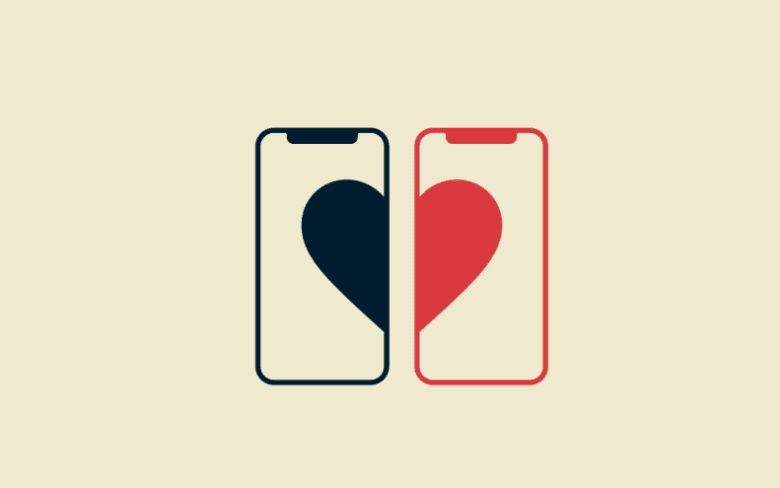The Real Dangers of Online Dating: What Every Dating App User Must Know Before Their Next Date
Online dating apps have changed how we meet potential partners. With just a swipe, you can start chatting with someone online, get to know someone, and even meet in person in a matter of hours. But while the convenience of these apps is undeniable, there’s a darker side that most daters don’t fully recognize until it’s too late.
This article uncovers the seven biggest dangers of using dating apps in 2025 and gives you practical, research-backed strategies to stay safe. From sextortion to love bombing, you’ll learn what to watch for, how to protect your safety, and which precautions you should take when navigating the world of online dating.
Why Online Dating Apps Feel Convenient—But Can Be Dangerous
Online dating platforms like Tinder, Bumble, Hinge, and OkCupid dominate modern romance. Whether you’re looking for a casual date or a long-term relationship, many apps promise instant connection. But the truth is, these dating apps offer little to no real verification for users, allowing suspicious profiles, predators, and scammers to flourish.
The Match Group, which owns several top dating platforms, has been criticized for weak user protections. While some platforms now employ AI to detect abusive messages, others continue to lag. In many cases, users are exposed to harassment, sexual abuse, blackmail, and even sexual violence without warning.
7 Hidden Risks You Face Using Online Dating Apps
1. Fake Profiles and Identity Scams
Fake profiles are rampant across dating sites. All it takes is a phone number and a few stolen images from social media profiles to create a convincing fake persona. Scammers use these accounts to build trust with vulnerable users and then manipulate them into sharing personal information or gifts, or personal details.
Once trust is gained, a scammer may pretend to be in trouble or claim to need financial help—common hallmarks of a dating scam. The danger is that you’re not just being tricked—you’re being targeted based on your vulnerability.
2. Sextortion and Blackmail
One of the fastest-growing crimes in the online dating world is sextortion. This is when a predator persuades a user to share nude images and then uses those images to threaten or blackmail them. Victims often feel unsafe, isolated, and trapped, especially teens and young adults who may be afraid to tell parents or authorities.
If you’re ever asked to send intimate photos or videos, recognize that this could be part of a wider attempt to exploit you. Never send anything you wouldn’t want to be public, and always err on the side of caution.
3. Love Bombing and Emotional Manipulation
Some abusive users will shower you with compliments, affection, and promises early in your interaction. This tactic—called love bombing—is designed to create emotional dependency. They may offer lavish attention, send money, or suggest a relationship far too quickly.
Eventually, this turns into coercion, emotional abuse, or even offline control. The goal is to undermine your independence and erode your boundaries. This behavior can also lead to sexual harassment, unwanted forms of sexual attention, or worse.
4. Pressuring to Meet Up in Person
Meeting someone from an app can be exciting, but if someone pushes you to meet in person quickly, be cautious. Research shows that many sexual assaults associated with online dating apps occur on the very first date.
Never let someone rush you. Always take time to verify who they are. Meet in a public place, tell a friend, and have your mobile phone charged. If you ever feel uneasy, trust that instinct—if it doesn’t feel right, it probably isn’t.
5. Lack of Platform Accountability
Many dating platforms don’t take real steps to help protect users. Despite claims of moderation and AI safety, users often report that their complaints about abusive messages, harassment, or suspicious profiles go ignored.
Legal loopholes, like Section 230 of the Communications Decency Act in the U.S., mean platforms are rarely held responsible for what happens on their apps. This makes it even more important that you take personal precautions to ensure your online dating safety.
6. Weak Verification Processes
Even when a platform claims to have verification processes in place, they’re often superficial. Uploading a selfie or scanning a phone number isn’t enough to confirm identity. This is especially dangerous for teens, who may falsify their age and wind up targeted by sexual predators on apps meant for adults.
The absence of reliable identity checks means you could be chatting with someone completely different than who they say they are, posing danger not just emotionally, but physically.
7. Oversharing Personal Information
In the process of getting to know someone, you may feel tempted to open up about your job, your family, or your struggles. But oversharing personal details on a dating app can make you a target for scams, manipulation, or even offline assault.
If someone knows you’re going through loneliness, financial difficulty, or relationship trauma, they may exploit that to persuade you into risky behavior or send compromising images.
How to Stay Safe While Using Online Dating Apps
- Keep yourself safe by staying on the platform. Don’t move to texting or WhatsApp right away.
- Avoid uncomfortable sharing. If you’re not sure, don’t say it.
- Never send nude photos or explicit content—even if you trust the person.
- Before you meet up in person, do your homework. Verify their identity, check their social media profiles, and let someone know your plans.
- Use AI-enabled safety tools or apps like bSafe to monitor interactions.
- If you receive abusive messages or feel harassed, block the person and immediately make a report to the app and authorities.
Special Advice for Teens and Parents
Apps like MyLOL and Skout are marketed to teens but lack serious protections. Dating sites aimed at youth are often poorly moderated and easily manipulated. Parents must talk openly with their kids about online dating safety, sexual abuse, and the real-world danger of dating platforms.
Encourage your teen to:
- Avoid sharing personal information
- Watch for warning signs like love bombing or fast escalations
- Never agree to meet in person without full transparency and adult oversight
Conclusion: Awareness is the Best Protection
In 2025, using dating apps is a normal part of life—but so is encountering bad intentions, emotional manipulation, and serious risks. Whether you’re new to online dating or a regular user, the best way to protect yourself is to stay aware, stay alert, and follow every precaution outlined here.
If you feel a conversation is turning unsafe, if someone pressures you for nude content, or if their behavior raises red flags, block, report, and exit. You deserve respect, safety, and control when navigating online dating platforms.



